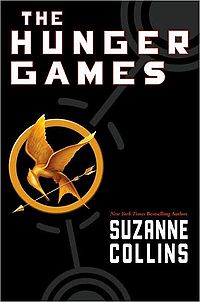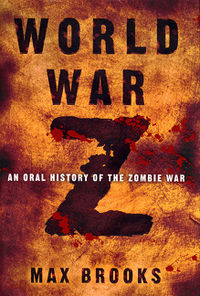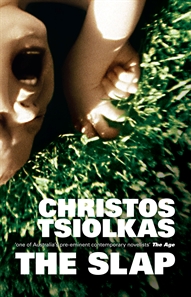More on Books …
Last Friday, in “It’s Friday — But First, More from “Elizabeth Knox & SpecFic”, I wrote about loving books that absorb me when I’m reading, and how consideration of “genre” isn’t something that comes into that equation.
Over the weekend, a friend asked me what were the three books I found most absorbing last year (why three—I don’t know, but I think it might just be that old magic number.) Well, I read just on 80 books last year but it was still an easy question, because there were in fact three that really stood out, both when I first read them and still when I think back.
These books were (with some, but by no means all, the reasons that I liked ’em):
 The Hunger Games by Suzanne Collins
The Hunger Games by Suzanne Collins
The Hunger Games has a very clever premise: a post-apocalyptic world in which a take on the old, old story of Theseus and the Minotaur (i.e. the tribute of young people, chosen by lot, who must compete in the arena for their conquerors) is combined with the current craze for reality tv. You also have the compelling character of Katniss, the young “survivor”, who like Theseus, is also a volunteer. But as with all fiction that works, every character who steps onto the stage of this book, however briefly, is compelling; all have a story, whether sad—and for the conquered, this is not a happy world—or brutal, or superficial (yes, there’s some of those, too, but no spoilers.) Collins made the world, the people and the situation believable and real—I was one with Katniss throughout and stayed with her and the story, all disbelief suspended, until the end.
The Slap is set in contemporary urban Australia and I know a lot of people dislike this book, for all sorts of reasons (search the title on line and you’ll find the discussion.) The story centres around an incident that occurs at a suburban bbq of friends and family, where an adult slaps a child who has been consistently misbehaving—and the consequeces ripple out, from that incident, into the lives of the people present. But I wouldn’t say it’s about that precisely, it’s more about the people and their lives and incidentally, as part of that, all the permutations of how they react and don’t react to the slap incident. Fallout. Or how the incident falls in to what is already going on. So why did I love the book? Because it’s so real. And the people are so real, so human, with all their motivations and agendas and backstories. They’re not necessarily particularly nice or comfortable people to spend time with between the covers of a book, but to me that’s because they are real. This is us, the human tribe, warts and all. And there’s definitely no authorial voice to provide a safe compass for readers to steer by: there’s just all these polyglot characters and their different voices. I loved it.
 World War Z: An Oral History of the Zombie Wars by Max Brook
World War Z: An Oral History of the Zombie Wars by Max Brook
I also loved World War Z: An Oral History of the Zombie War (although again, I know people who just couldn’t get into it.) Like The Hunger Games, World War Z is post-apocalyptic, although more immediately so than THG: this is our world as we know it, just 10 years on and post the zombie apocalypse. Interestingly, I think the reasons I loved WWZ were very similar to the reasons I loved The Slap: it felt so real. In WWZ, zombieism is effectively a virus and as I was reading it I was always thinking yes: yes. This is how it would spread; this is how people would behave, as individuals, as groups, as governments. This is real; these people—every voice recounting his or her own personal history of the events (although there are also threads pulling the whole together)—are real. Also human, fallible, unheroic, sometimes venal, but occasionally heroic, too. Interestingly, Tor.com also ran an interesting series of articles a while back, on Post Traumatic Stress Disorder in contemporary SF-F, which suggested that World War Z provides one of the few authentic depictions of PTSD in fiction. There’s 3 instalments, starting here.
Definitely three very different stories, but at the end of each one I put the book down and I felt satisfied. And they’ve stuck with me.








